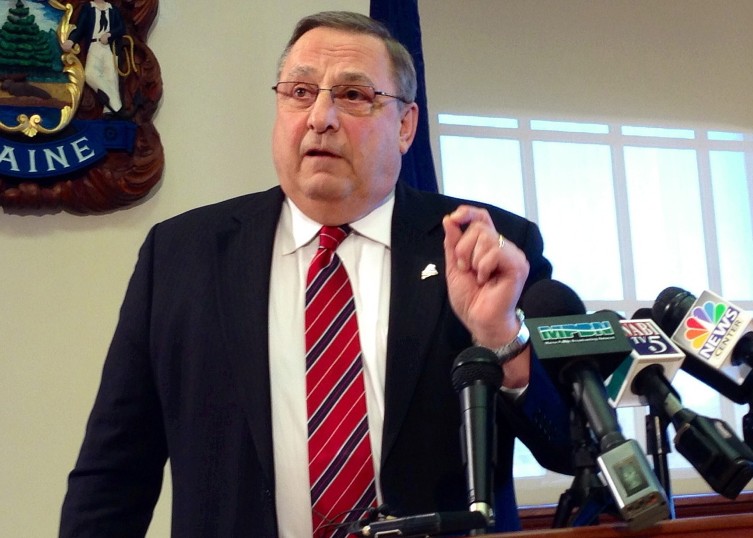We mostly see people with addiction at their worst, when bad choices and altered impulses lead to public consequences, and often a mug shot on the evening news. But to solve the opiate epidemic, we need to see them as the people they were before addiction hijacked their brain circuitry, and as the people they can be again.
More and more, the public is getting there, pushed by a drug crisis that more than any before it has hit suburban, middle-class America. Political leaders, historically too quick to ask law enforcement to solve what is a public health problem, are coming around, too, as evidenced by the pact signed last week by 46 state governors that focuses on saving lives, not prosecuting addicts.
Unfortunately, Maine’s governor, Paul LePage, is still stuck in the past. LePage refused to sign the agreement, calling it, through a spokesman, a “feel-good measure” that fails to address the full scope of the problem.
It’s hard to see what is wrong with an agreement that calls for reducing inappropriate prescribing of opioids, improving the country’s understanding of addiction, and ensuring that people with addiction have a pathway to recovery. Yet the governor found plenty.
According to the governor’s office, LePage was most upset that the pact did not call for beefing up law enforcement. That’s been the default response to drugs in Washington and state capitals across the country for decades.
Plus, the country has thrown billions of dollars in law enforcement efforts at the drug problem, and has only ruined innocent lives and brought cheaper, stronger, more plentiful drugs to our neighborhoods.
No, it’s better for governors to focus on stopping the overflow of addictive pain medications – an area where LePage has been a leader – and changing the views of Americans who see addicts as criminals and addiction as a moral failing that should be punished, not a disease to be treated.
On the latter point, LePage’s actions and rhetoric have been harmful, and concerning for their lack of depth and knowledge.
Just last week, during a radio appearance, the governor disparaged the use of methadone – shown to be among the best courses of treatment for heroin addiction – while in the next breath saying his administration endeavors to use “the best science” to formulate policy.
Worse, in response to the governors’ pact, LePage restated his absurd objection to the overdose antidote naloxone, saying through his spokesman that the medication “has not been proven to get drug addicts off deadly opiates.”
Thankfully, that illogical line of thinking has been rejected by advocates, police and a majority of Maine legislators. Naloxone was never meant to treat addiction, just as a heart stent doesn’t lower your cholesterol. It simply revives a person near death from overdose. Making it less available won’t get more people into treatment; it will only ensure that more people die.
Also last week, LePage said again that only 10 percent of people with addiction to heroin recover, a claim that has no basis in reality and which along with his statements on naloxone make us wonder just where he is getting his information.
LePage is the most visible speaker in the state on this important and deadly matter, and his uninformed views are poisoning attempts at progress. By essentially, and incorrectly, saying that addicts are a lost cause, he is playing to the worst impulses and prejudices of the public, and giving up on thousands of Mainers who are struggling with a disease.
It’s that attitude that all but guarantees we haven’t seen the peak of the pain and suffering caused by opioid abuse.
Send questions/comments to the editors.



Success. Please wait for the page to reload. If the page does not reload within 5 seconds, please refresh the page.
Enter your email and password to access comments.
Hi, to comment on stories you must . This profile is in addition to your subscription and website login.
Already have a commenting profile? .
Invalid username/password.
Please check your email to confirm and complete your registration.
Only subscribers are eligible to post comments. Please subscribe or login first for digital access. Here’s why.
Use the form below to reset your password. When you've submitted your account email, we will send an email with a reset code.